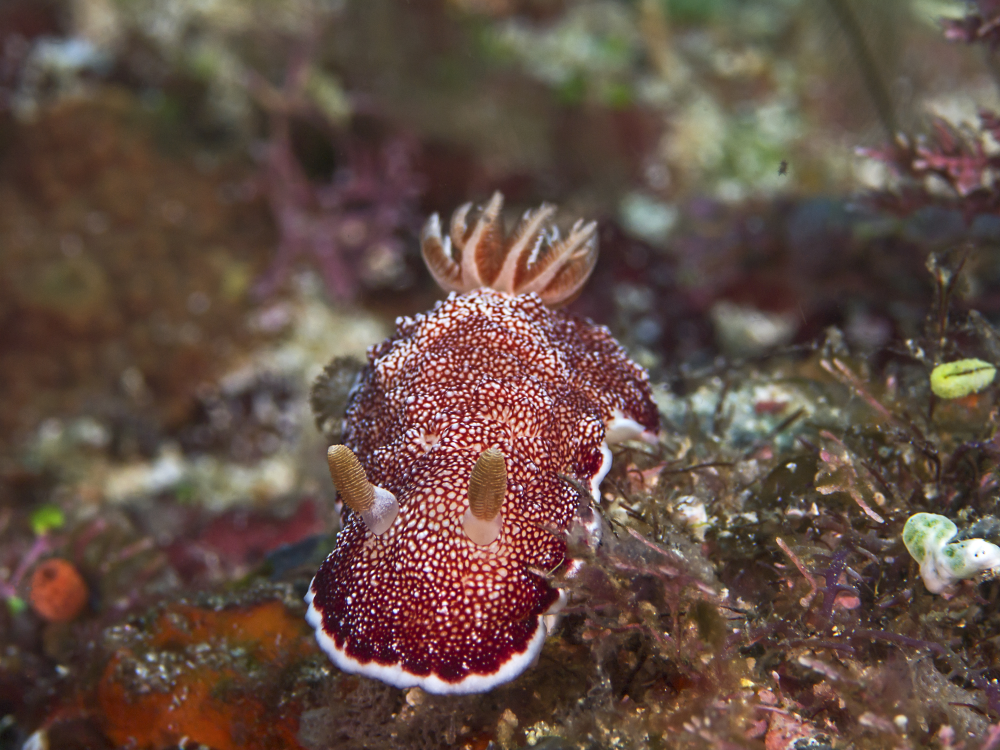Sex is disposable in the most literal sense for the sea slug Goniobranchus reticulatus (formerly Chromodoris reticulata). In a 2013 study, it became the first known animal to reproduce using “disposable penises” that could be jettisoned after mating and replaced with a new one, but the magic doesn’t last forever.
It’s thought that these nudibranchs have at least two other penises in the bank. They’re stored internally and are ready to be rolled out around 24 hours after the predecessor is lost.
The animal kingdom gets quite competitive when it comes to penises, sprouting designs meant to scoop out any rival sperm that’s still lingering in the vagina. Often this comes in the form of spiny-looking creations, and the same is true for our curious sea slug.
However, being good at getting things out can also mean being at risk of getting stuck and damaged. As such, it could be that having a fresh penis to roll out in lieu of your old one is the smart way to go if you want to lock in as many mating events as possible.

Carry yourself with the confidence of a sea slug who has at least three (3) penises in the bank.
Image credit: scubaluna / Shutterstock.com
These sea slugs “compensate for the short-term cost of decreased reproductive opportunities caused by the loss of a penis with the reproductive advantage gained by sperm displacement under severe sperm competition,” wrote the study authors. “They further minimize the loss of reproductive opportunities by preparing the ‘next penis’ using the spiral structure to shorten the interval until the next possible copulation. Thus, the ‘disposable penis’ […] provides an example where sexual selection is as important for simultaneous hermaphrodites as it is for gonochorists.”
If you’re thinking, “that’s a weird thing for the males to do, I wonder what the females are up to?” now might be a good time to point out that, actually, when it comes to these sea slugs, everyone’s throwing their penises away. That’s because, in a copulatory pair, both parties are simultaneous hermaphrodites, meaning they bring box sex organs to the party, inserting their penis into the other’s vagina and being on the receiving end of theirs. Once the deed is done, both ditch their penises and move on.
Shedding body parts might seem extreme, but there are sea slugs out there that take this anatomical party trick to a whole new level. Rather than replacing parts, they self-decapitate, leaving only a head that, remarkably, lives on for a few days without a body before sprouting a brand new one.
A highly covetable skill when you reach the sober conclusion of a very merry festive period.
[H/T: Discover Wildlife]
Source Link: Lost Your Penis? These Sea Slugs Can Rustle Up A New One In 24 Hours